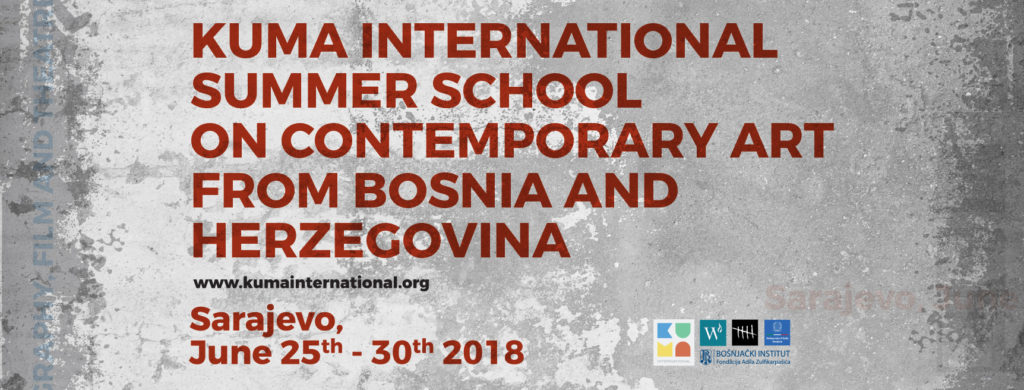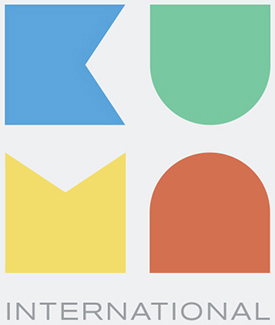
“My entire life has been undeniably affected, for better or worse, by the fact that I am a Bosnian-Herzegovinian refugee. War and peace are both part(s) of my life. I am who I am (becoming), and I cannot help but embrace it – to dwell into it, to decipher it, to comprehend it, to make something worthwhile and worthy out of it. Most importantly, I am compelled to devote my time and energy to continuously learn about the nature of war and peace in general and the war and peace in BiH. As such, with all this in mind, a summer school program which focuses on post-war artistic production in, about, and from BiH is an optimal fit for me, professionally and personally. It is, in other words, an amalgamation of the aforementioned aspects of my life, my work, and my studies. Understanding the complexities of armed conflicts and their aftermath can be undertaken through a variety of disciplines and paths, all of which are remarkable and laudable in their own right. The arts, however, possess a uniqueness in this endeavour. The arts are always already about the human condition and will, therefore, portray (in this context) the human experience of war and peace. This, indeed, is something which cannot and should not be undervalued. My aspirations for the Kuma International Summer School would be to gain more profound knowledge about the post-war production of art in/from BiH. My expectations are simple yet profound; I hope to be motivated and inspired, to my core, to follow this path in the future – academically and professionally. Mostly, I am hopeful to get the opportunity to do so”.
“With great enthusiasm and interest, I have read your announcement about Sommer School in Sarajevo. I was born in Sarajevo and lived in Sarajevo until 2003 when I started my art studies at Academy of Fine Arts in Zagreb, Croatia. What cot my interest about your project is the focus on the themes of post-conflict societies and diaspora, but for the most the emphasis on the Bosnian contemporary artists and art scene. Although I am originally from Sarajevo, I feel a void, alienation, and disconnection when it comes to the art scene of the region. When I left a place, I never came a back to build connections; I instead decided to search for a new place”.
“As a young literary scholar working on a kind of affective/bodily/visceral representation of the Bosnian war on the contemporary European and American stage, I believe that through this workshop, a short, yet highly, influential dialogue among its participants, both the artists and the “spectators,” I will acquire a more experiential insight about one of the bloodiest and deadliest warfare in modern European history. Art may be commonly recognized as an effective weapon for social and political commentary; however, the very foundation of art is a human and completely affective experience. In this sense, this workshop proves to be, apart from an educational program, a synesthetic experience of a rich tapestry of human suffering that I will have the chance to live and from which I will emerge both shattered and strengthened, certainly changed. Finally, the opportunity your workshop will provide me to meet and discuss my research with other artists and professionals in this field is of high importance and particular interest to me since I aspire to widen further my academic horizons through a PhD. It is my belief that I can be a valuable presence in the workshop that it will benefit both myself and others, as well”.
“This particular summer school presents itself important to my practice, not only because of my family’s history (Bosnian-Serbian German) but also to feed my deep interest and excitement about research. I’m dying to know more about the contemporary scene in Bosna-Herzegovina. My mother’s retellings of life in Tuzla are deeply touching and fascinating, yet it still remains a world that can no longer be accessed and therefore flourishes in my fantasy. Spending a week on intense studies of local and diasporic creative practices would perhaps be an attempt to fill the gaps in practical and contemporary knowledge. Diaspora, queerness and intersectionality are thematics that remained integral to my work in the past years”.
“To begin, I am very interested in attending your summer school due to my own background and gravitational pull back toward Bosnia. I was born in Prijedor, and my family fled to Australia when I was 4 years old. I’ve always felt homeless somewhat. My parents’ connection is to an imaginary Yugoslavia (I recall my Mother stubbornly trying to fill in Yugoslavian in a form requesting her nationality; Miss, that doesn’t exist anymore); in my family, like in many families of the diaspora, time is divided into prije rata, poslje rata. As I get older, I find myself increasingly drawn back to Bosnia. My Grandmother lived in Sweden but spent every summer in Sarajevo. I am sad that she died in Sweden, alone, in a country where she did not speak the language; rendered invisible by her class, her age and her dispossession”.
“I have read about Sarajevo in many books; I have seen different movies and documentaries; I have appreciated some artworks about this land; I have dreamed all that times, trying to imagine places, people, sounds, and architecture of those imaginaries. The youth and the elderly; different generations with different memories, different stories, different feelings. Now, I’m looking at this summer school as a golden opportunity to have, for the first time, a personal experience of this place, broadening my horizon, dealing with a territory that has a history completely different from what I already know and what I can image; it could help me develop a more critical point of view”.
“I look forward to meeting other professionals and researchers in the field, hoping to exchange both on the subject of wartime art as well as pre- and post-war art, in order to gain a more nuanced understanding of the changes and developments in the local artistic community over the last forty years. These types of discussions would be highly beneficial, particularly considering the difficulties in accessing reliable academic literature on ex-Yugoslav art outside of the Balkan sphere. In this sense, both the typical lecture format as well as more informal and topic-specific sessions could provide a beneficial addition towards the conference”.
“Since I am interested in social topics, I find it very important to be familiar with the recent war conflicts of the country I come from, as well as different approaches and art practices of older artists who were affected by the war more or less directly. The 90s war was an undoubting turning point that redirected and shaped what Bosnian society is today, grew a whole new belief system”.
“I am extremely honoured to confirm my attendance and participation in the Kuma Summer School Program. Thank you for your excellent concepts and organization. When I saw your program, it felt like a miracle, as it is exactly what I could benefit from to take my study of the area to the next level. Furthermore, it is a luxury to find people with similar interests and research paths. I simply cannot tell you how grateful I am to have been accepted and how much I look forward to the experience”.
“Until this past November, my love of art did not have much to do with my career goals. Last fall, I took a graduate class on the literature of genocide and I went to a number of the Emerging Consequences symposium sessions, including one on Artistic Interventions and Memorialization. Before that session, I didn’t know anything about post-conflict art and memorialization. Presentations there were incredibly inspiring. I realized that my love of art could be more than just a hobby, that art and memorialization can be used to work through trauma and to raise awareness about conflicts, and that I want to be part of that process. This summer school is about exactly what I’m most interested in, and it would give me the opportunity to see artists and those working in the field of post-conflict aesthetics up close. It would be an amazing learning experience, allowing me to start combining my passion for art and my passion for genocide studies. I am so excited that this program is happening, and I hope I can attend”.
